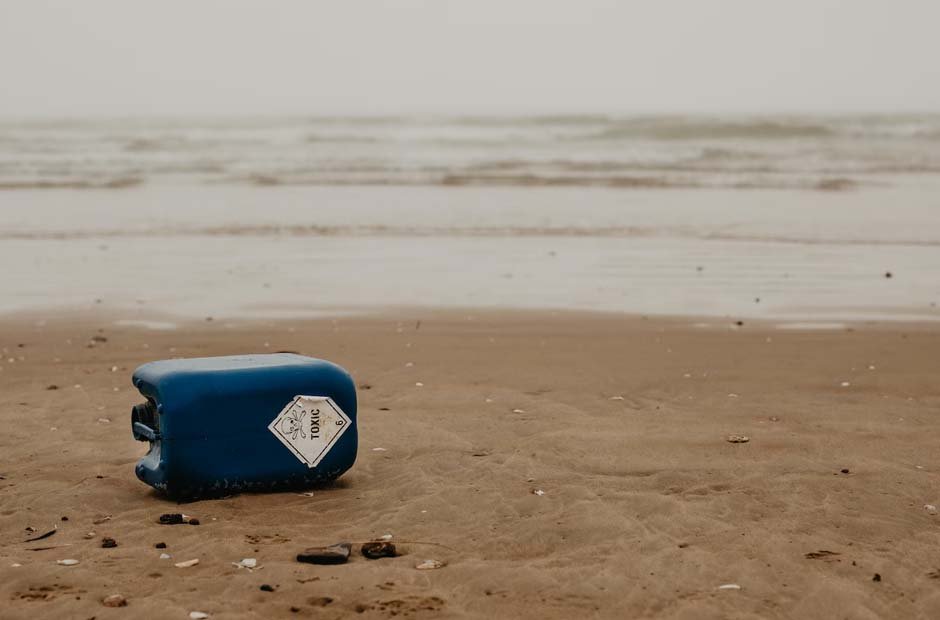In the calm surroundings of Camp Lejeune, a United States Marine Corps base in North Carolina, a hidden danger emerged. The essential element of water became tainted with harmful chemicals. The Camp Lejeune water contamination reveals how even safe places can face serious threats.
This article takes a journey to uncover the story of how a place for soldiers and families turned into a battle against unseen dangers. Let’s explore the effects of these harmful chemicals on the health of the community.
Background of the Camp Lejeune Water Contamination
Camp Lejeune, a military base created in 1941 to train U.S. Marines, faced a troubling issue between the 1950s and 1980s. The water people drank there became harmful due to dangerous chemicals. This problem affected both soldiers and civilians living on the base.
Now, many people are seeking justice through lawsuits. More than 80,000 claims have been submitted under the Camp Lejeune Justice Act of 2022. Recently, in a Camp Lejeune lawsuit update on July 3, judges in North Carolina took a step to organize the legal process.
They started to interview potential leaders who would guide the lawsuit. These leaders will suggest ways to make the lawsuit process smoother. The timing for selecting the leaders remains uncertain. However, this action is viewed as a positive move towards organizing the legal process, as acknowledged by the TorHoerman Law.
The Culprits: Harmful Chemicals Involved
In the unsettling tale of the Camp Lejeune water contamination, a sinister cast of harmful chemicals takes center stage. These culprits, insidiously introduced into the water supply, wrought havoc on the health and well-being of those who came into contact with them. Let’s uncover the identity and dangers posed by these toxic substances, shedding light on the lasting impact they had on the lives of many.
Trichloroethylene (TCE)
Trichloroethylene (TCE) is a synthetically produced volatile and colorless liquid organic compound. While not naturally occurring, it plays a pivotal role in chemical manufacturing. Its primary applications include the production of refrigerants and hydrofluorocarbons, along with its use as a solvent for degreasing metal machinery.
A notable case involving TCE contamination pertains to the Camp Lejeune water supply. Widely employed as a degreasing agent for metal parts, TCE has been flagged by the Environmental Protection Agency (EPA) as a human carcinogen. Its association with various health problems, including liver and kidney damage, neurological issues, and diverse forms of cancer, has been extensively documented.
Recent comprehensive analysis suggests that individuals exposed to trichloroethylene in occupational settings face an elevated risk estimated at 30% to 40% of developing kidney cancer.
Perchloroethylene (PCE)
PCE, a solvent used in dry cleaning at the base, is linked to CNS, liver, and kidney effects, classified as a potential human carcinogen. Prolonged exposure can lead to lasting CNS issues like fatigue, coordination problems, and memory loss.
Pregnant women inhaling PCE can expose the fetus, and breast milk can also carry it. Inhalation of over 200 ppm causes dizziness, confusion, and eye irritation. Extremely high levels (>1,500 ppm) result in unconsciousness and potential death.
Benzene
Benzene, an extremely flammable and carcinogenic compound, was found in the Camp Lejeune water supply due to fuel storage tank leaks.
It holds a significant position among chemicals manufactured in the United States. This is according to the Centers for Disease Control and Prevention, which ranks it in the top 20 based on production volume. Industries employ benzene in the creation of rubber, dyes, lubricants, detergents, pesticides, and pharmaceuticals.
Multiple federal agencies categorize it as a proven carcinogen. Scientific investigations indicate that exposure to benzene can amplify the likelihood of specific cancers by up to 40%. Even minimal exposure to benzene is linked to a significantly elevated risk of developing leukemia.
Vinyl Chloride
Utilized mainly in the manufacturing of plastics, vinyl chloride is a chemical compound that can adversely affect groundwater when improperly disposed of as waste.
Its main use involves the production of polyvinyl chloride (PVC), a durable plastic resin. This material is widely utilized for crafting various plastic products, including pipes, wire coatings, cable coverings, and packaging materials.
Exposure to vinyl chloride is linked to an increased risk of developing a rare form of liver cancer called hepatic angiosarcoma. Additionally, it is associated with primary liver cancer (hepatocellular carcinoma), brain and lung cancers, lymphoma, and leukemia.
Conclusion
The Camp Lejeune water contamination serves as a tragic reminder of the far-reaching consequences of neglecting water quality and environmental safety. The exposure to harmful chemicals left a lasting impact on the health of those stationed or residing on the base.
This incident underscores the importance of robust environmental regulations, transparent information dissemination, and proactive efforts to prevent water contamination in the first place. As we move forward, it is imperative to learn from this devastating event and ensure that clean, safe drinking water remains a fundamental right for all.
















